#developmental psychology
Explore tagged Tumblr posts
Text
Spy x Family: Ch. 109 Manga Spoilers ahead!
.
.
.
I just realised, this chapter is definitely AFTER Anya had told Damian that she can read minds, right?
Because, I'm wondering about a few things, and I would be beyond excited if either of these happened:
1) This could be the catalyst for Damian realising that Anya was telling the truth.
I'll admit that I don't thiink that this is likely; instead, I wonder if it will be a collection of events put together that will bring Damian closerr to the truth...
2) When (or if) Damian realises that Anya was telling the truth about her telepathy, then he will also realise that she was telling the truth about his mother loving him.
I will so for real sob if this happens, because right now Damian has no idea if he is even loved by his parents at all.
He needs to know, (literally from a developmental psychology standpoint to ensure healthy core beliefs when growing up), and I think I can speak for us all here when I say that we the readers desperately want Damian to know as well.

Watching Damian puzzle things together is always so heartbreaking and heartwarming at the same time, and my heart aches for him with the knowledge that he is loved, he is loved, he is loved, and he has no idea.
Now I am even more desperate to see Damian realise the truth of Anya's telepathy, because then he has a hope of understanding what has been hidden from him here.
#spy x family#spy x family manga#spy x family spoilers#Side note: isn't it cool that you can see Damian's silhouette in Anya's eyes?#developmental psychology#because why not#as a treat#damian desmond#anya forger#melinda desmond
132 notes
·
View notes
Text
Psychology is a very broad field, and there are a lot of different aspects to this field. It’s really hard to navigate this science without a bit of academic knowledge, so I’m going to open up my asks in general for people who are interested in psychology. I have access to several academic databases and I would love to share them with people who want them! I also really want chances to info dump and get excited over psychology more often :,))
My research surrounds psychology, especially psychopathology and DID research, so a lot of my support will be good through that. However, I do have a bit of knowledge on other branches of psychology if you are interested (e.g. sensation and perception, cognitive, early childhood development, some neuropsychology). I can also connect these to psychopathology fairly well, that being my specialty. If this actually gets interest, I may make a side blog to help give psychology education.
I have more information under the cut if you would be interested!
(Yes I know a lot of the tags are DID related but thats a big target audience of mine so sue me /lh)
If you do send me an ask, make sure to be as specific as possible. I can (and will) do some extra preliminary research to figure out things, but the more specific the better for me! Terms that are used colloquially usually have other terms in research/are misunderstood by general discussion. I also have access to general textbooks covering branches of psychology if you are interested in the overall field!
Also please be sure to ask me for a simplified explanation if you need one! The abstract, background info, and discussion sections are your friend.
No question is a stupid question!!
Here are some different overall categories to stir up some interest (and these are categories I definitely feel the most comfortable in, but it is not an expansive list):
Sensation and Perception: This is the study of the different senses and how this contributes to our perception of the world. The research surrounds the physical detection of stimuli through the senses (sensation) and how the brain interprets this information (perception). Some commonly covered sense are: vision, audition (hearing), vestibular, somatosensation (touch), interoception, olfaction (smell), and gustation (taste). (I am currently looking into the vestibular system, it’s very cool).
Cognitive psychology: This is the study of how people think and process things. A lot of this includes attention, perceptions, memory, language, and problem-solving skills. This branch is all about the process of information, including the ones we are not consciously aware of. (I have been a TA for this class).
Developmental psychology: This is the study of development through the human lifespan. It is typically broken down into early childhood (infancy to 10-11 years of age; infancy can also be separated on its own), adolescence (roughly 12-18 years), adulthood (age ranges from 18-65, but this is usually broken down), and later adulthood (65+ years of age). It can be very all encompassing of psychological functions.
Social psychology: This is the study of how society impacts the thoughts, feelings, and actions of the individual—regardless of whether it is an imagined or actual interaction. Social psychology can cover things such as race, ethnicity, class, gender, sexuality, disability, etc.. Covers conformity, deviance, socialization, prejudice, and more.
Personality psychology: This is the study of personality traits we can find in an individual and how it influences an individual’s behaviors, adaptations, or interactions. The three levels of personality analysis: human nature (how alike we are to the entirety of humanity), individual/group differences (how alike we are to specific groups), and individual uniqueness (how we are like no one else).
Biological psychology: This is the study of the biological and physiological processes that make us react and behave in the ways we do. It includes human anatomy to explain the interactions of biology (endocrine, immune, neural pathways, etc.) to psychology. When I use the term “biomarkers,” it is most likely related to biological psychology
I can probably make a few posts about how to navigate research papers, the kinds of papers you will come into, different statistical tests, and some general basic introductory psychology information.
#psychology#psychology research#research#academic#academic research#sensation#perception#abnormal psychology#psychopathology#developmental psychology#did#osdd#system#sysblr#plural#adhd#autism#dissociation#neuropsychology#clinical psychology#cdd#alter#personality psychology#personality disorder#comorbidities#traumagenic#psychosis#did community#actual did#plurality
20 notes
·
View notes
Text
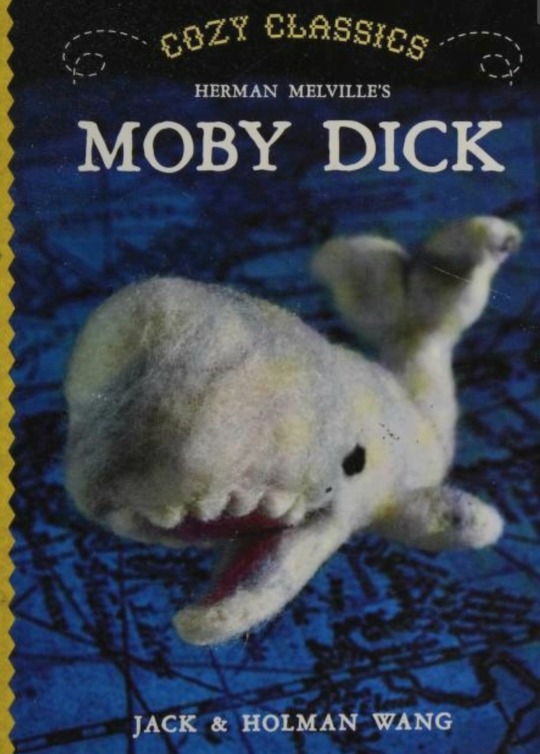
Developmental psychology scholar read Cozy Classics' Moby-Dick! Here are the thougts.
For those who haven't heard of the Cozy Classics, they are a series of board book adaptions of great classics such as Oliver Twist, The Wonderful Wizard of Oz, and Jane Eyre, created by Jack and Holman Wang and intended for young children. What makes these books stand out, however, is that they come with a most delightful needle felted twist!
Each book contains 12 illustrations, consisting of photographs depicting scenes from the original story and featuring needle felted characters and props.
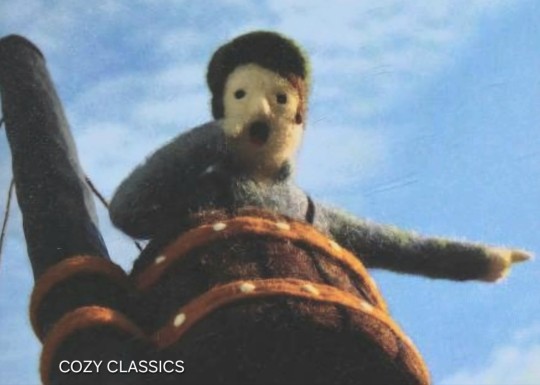
In addition to this, 12 words related to the story are printed in-between the illustrations; "sailor", "leg", "boat", "find"...
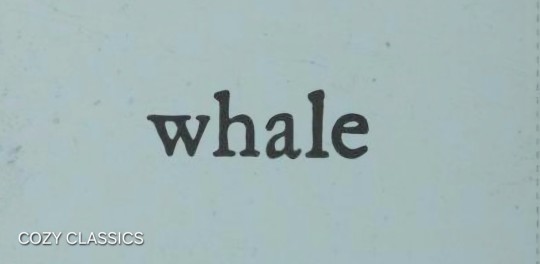
...et cetera. Guess Moby-Dick gets a bonus word though, since "Pequod" is ever so neatly embroidered on the ship's fluffy name plate.
I have to say that this whole concept is nothing short of genius. Not only are the little ones presented with the classics fitting their own level of perception, but the materials shown in the pictures are all familiar ones to them sensory-wise, thus much more relatable than conventional illustrations.
As for the words, they are fitting 1-2 syllable ones, but their meaning - at least in this case - are somewhat unsual. I'm telling you, one doesn't find educational toddler literature containing "smash", "sink", and "mad" together all that often. The choice of words in combination with the pictures also works in an almost insidious fashion in that they will now be forever planted in the lil' one's brain and for the rest of their life they will recognize that peg legged dude with anger issues.
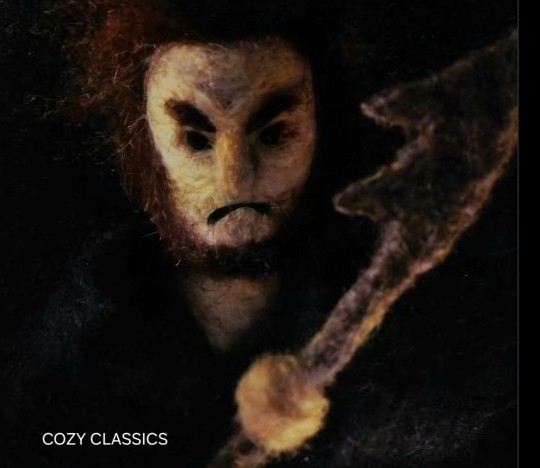
The book manages to capture the essence of the original quite well and what truly surprised me was how the creators did not hold back on the dark stuff. Ahab looks like something that definately will come crawling out from under your bed at night for a maniacal stabbing session, Moby Dick turns the Pequod to splinters, and a heart broken Ishmael floats around on a coffin. Even the color scheme is moody and ominous. We approve! 👍

Even if you don't have a child nearby to brain wash, I highly recommend you check this book out - it's up for a free read on archive.org - for the sake of admiring the pieces of downright wool art.
So, there's the Cozy Classics Moby-Dick for ya. Now I have to go ponder whether I should add a request for a needle felted coffin in my death plan.
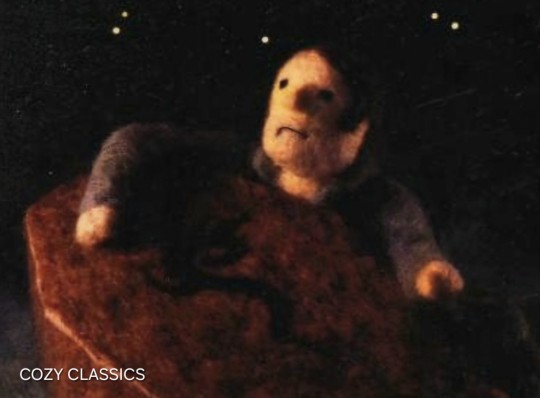
#moby dick#herman melville#literature#childrens books#classic literature#developmental psychology#captain ahab#ishmael#white whale#needle felt#cozy classics#book review#love it
32 notes
·
View notes
Text
I was studying my developmental psychology notes and found this,
Affectionless psychopathy: what can develop if a child is deprived of attachment; it means showing little concern for other’s and being unable to form relationships.
Sooo Question(s) of the day,
was dazai an affectionless psychopath?
what other bsd characters do you think fit the bill?
Edit:
I now feel quite stupid for thinking dazai would be an affectionless psychopath ✌️🥲
(Actually thought abt it😭)
#me personally i think fyodor Definitely qualifies#bsd#bungou stray dogs#bungo stray dogs#dazai#bsd dazai#bsd dark era#chuuya#bsd chuuya#akutagawa#bsd akutagawa#bsd poll#bsd fyodor#fyodor dostoevsky#bungou stray dogs fyodor#developmental psychology#bowlby’s maternal deprivation theory#psychology
35 notes
·
View notes
Text

I never normally work in cafés, but I realised recently that I am actually... absolutely allowed to do that? 😅 And it's so nice?
So I'm giving it another try today. I have a really delicious blueberry banana bread (already half-eaten, oops!). And I'm posting here for accountability. Because the goal is to write 1000 words within the next two hours!! 💻🍰☕️
36 notes
·
View notes
Text
"The overview effect is a cognitive shift reported by some astronauts while viewing the Earth from space.Researchers have characterized the effect as "a state of awe with self-transcendent qualities, precipitated by a particularly striking visual stimulus". The most prominent common aspects of personally experiencing the Earth from space are appreciation and perception of beauty, unexpected and even overwhelming emotion, and an increased sense of connection to other people and the Earth as a whole.The effect can cause changes in the observer's self concept and value system, and can be transformative."
⸻
Missing the Mark: Christianity Without Contact
The Overview Effect is a term astronauts use to describe a shift in perception. Seeing the Earth from orbit changes how they see everything: borders, identity, meaning. And here’s the thing—they knew it was coming. They’d read the reports. They’d heard the stories.
But then it happens.
And it still profoundly affects them.
Because it’s not an idea—it’s a rupture. They don’t believe something new. They see what was always there, now without the imposition of arbitrary divisions.
Meanwhile, many Christians never even get on the spaceship because They’re too busy arguing about what they heard about heaven from someone else who's only read about it. All while their pastor is saying spaceships and a open experiential perspective are demonic because Constantine and King James said so.
This isn’t about space. It’s a metaphor illustrating the difference between conceptual and direct experience and how that relates to Christianity.
Because much of Christianity has become a religion of people arguing over maps they’ve never used. Concepts without contact. Dogma without experience. Speaking authoritatively about the view from orbit when they have never left the ground metaphorically speaking.
⸻
Transpersonal Experience is Open Awareness
Not belief.
Not morality.
Not theology.
Open awareness—the direct, unfiltered, nonconceptual seeing of what’s here as being not theoretical description of it.
The falling away of the self-image.
The end of story.
The recognition that there is no separation.
No subject-object split.
No “me” apart from “them.”
That’s the shift. That’s what every authentic tradition is pointing to.
That’s what Jesus pointed to when he said, “The Kingdom of God is within you.”
It’s not a promise.
It’s not metaphor.
It’s a statement of fact for those with eyes to see.
Many Christians Think They Get It. Some do tho historically they have been silenced, violently at times. That said Many in fact do not get it. This is observable fact. Anytime see a Christian causing harm in the name of Christ you have a perfect example of this. The gospel of James speaks to this.
Quoting scripture doesn’t mean contact.
Feeling inspired doesn’t mean contact.
Defending doctrine definitely doesn’t mean contact.
If your sense of self has not collapsed, even momentarily,
If you have not seen through the illusion of separateness,
If you still think of God as something “other,”
You are not speaking from the thing.
And that’s fine...until you build culture, laws, politics, and moral hierarchies on that ignorance.
Then it’s not just misguided. It’s violent.
⸻
Hamartia: Missing Reality
The word translated as “sin” is hamartia. It means: to miss the mark.
And the mark isn’t behavior. It’s reality.
To sin is to identify with the avatar.
To take the thoughts in your head as who you are.
To cling to belief instead of presence.
To say “God is love” and still think there’s a boundary between you and your neighbor.
You don’t need forgiveness.
You need to repent, aka see reality clearly.
⸻
Other Traditions Point to the Same Thing
They all name the same shift:
• Satori (Zen)
• Moksha (Vedanta)
• Fana (Sufism)
• Gnosis (Gnosticism)
• Theosis (Christian mysticism)
• Nirvana/Rigpa (Buddhism)
• Ego death, nonduality, awakening, open awareness
These are not competing ideas.
They are descriptions of the same shift in perception.
The language changes. The structure doesn’t.
⸻
Love Thy Neighbor as Thyself—Because There Is No Other
This isn’t moral instruction.
This isn’t divine suggestion.
This is a description of reality seen clearly.
When the illusion of separation drops,
you don’t try to love your neighbor.
You don’t choose to forgive.
You don’t apply compassion.
You see that there’s no one else there.
The rest follows.
⸻
This Is the Divide
Not between Christians and non-Christians.
Not between saved and unsaved.
The divide is between:
• Those who’ve seen through the illusion of self
• And those still defending it with scripture
Everyone has glimpsed it.
Few recognize it.
Fewer trust it.
Even fewer live from it.
But it’s there.
Always.
Beneath the noise.
Before the belief.
Now.
Its a safe to say many of if not most Christians that read this will not understand what I'm saying and possibly get offended and defensive. The sad part is, it's expected because the bible explicitly indicates how this ignorance manifests. And yet and still.
How can you see this for yourself? Be still and know God. In a pragmatic way...
I'll attempt to articulate my perspective on the practical approach. Firstly imho if observing the breath without interfering with or altering it is challenging, it's probably going to be as challenging if not moreso to observe more subtle objects like thoughts, the mind, the sense of self or awareness itself. This may just be a distinction that exists at the relative level of egoic perception but there seems to be a nuanced hierarchy from gross to subtle. some will say it's all phenomenon in awareness and they might be right but the paradox is getting to that realization. Looking is a process, seeing is immediate. From my observation It's not impossible to experience sustained (ie days weeks months years etc) open awareness (aka no observable perception of border between self and other experientially) without a cultivating practice but there seems to be a valid reason why all of the well known spiritual traditions (even Christianity which is arguably fundamentally non-dual presented pedagogically in dual language) promote some degree of mindfulness scaffolded by relative contextual moral frameworks. These frameworks matter and serve a valid valuable purpose but they can be and indeed have been weaponized to harm others and ultimately become an obstruction to seeing the very moon they were constructed to point at.
One might say that the entirety of the bible is divinely designed to put this in perspective but one must adjust their perspective to see what is actually being said.
I'll attempt to illustrate this from another perspective.
The Fall in Eden can be understood not just as a moral allegory, but as a metaphor for the emergence of self-awareness in human development. This shift is mirrored in the mirror self-recognition test, when a child, usually between 15 and 24 months, recognizes its reflection as self. This moment marks the rise of ego, the awareness of subject and object, and the loss of pre-reflective unity with the world — echoing the biblical bite from the Tree of Knowledge, which introduced the awareness of duality.
Before this, the infant exists in a non-dual state, with no concept of self as separate. There is only immediacy and unfiltered experience — what might be called Eden. Studies show some animals cross this threshold too, suggesting it reflects a deep cognitive transformation.
Jesus’ words, “Unless you change and become like little children, you will never enter the kingdom of heaven,” speak to returning to this non-dual state. The “Kingdom of Heaven” is not a future realm or symbol, but an experiential reality — the same as Eden. His call to “repent” (metanoia) is not moral correction but a shift in consciousness, a move beyond egoic identity toward unity.
Spiritual realization traces a loop: from original unity, through ego development and separation, and back to unity — not by erasing the ego, but by seeing through it. The child cannot know reunion without first knowing separation. The adult who returns does so through transformation.
Eden and Heaven are not separate symbols but the same reality. They point to a state of being beyond duality. The Fall is not a failure but a necessary step. The return is not a prize but a recognition. The kingdom of God is within — the awareness before the mirror showed us our face.
#Overview effect#garden of Eden#heaven#religion#spirituality#comparative mythology#Christianity#Christian mysticism#developmental psychology#transpersonal psychology#philosophy#mirror self recognition test#direct experience#nonduality
5 notes
·
View notes
Text
Can a blorbo be a transitional object?
I am back on my bullshit with some therapy-related thoughts.
First, definitions.
What is a blorbo?
Since we're on Tumblr, ya'll probably know what a blorbo is, but if you somehow don't, it is The Character. The one you obsess over. The one you're constantly spinning around in your brain. Thinking about them can bring you comfort and/or distraction.
Of course, I have a blorbo, which is probably A HUGE SHOCKER given I never talk/write/draw/get a tattoo of him. Nope, couldn't be me. (Yes, I consider Squall my #1 Blorbo)
What is a transitional object?
Transitional objects, or "comfort objects," are (usually) physical objects that a child will use to feel comfort when separated from a caregiver. Think about your baby blanket. Or that one stuffed animal you carried everywhere. That object helps a kid self-soothe and feel in control. These objects are especially helpful around bedtime for helping the child sleep.
Sometimes, kids will personify a transitional object as a way of more safely expressing their own wants/needs/concerns. I have a client who brings her transitional object (Monkey) to session with her, and sometimes we have this friend "participate" in the art directives--that is, the client will do the exercise for Monkey. Monkey's art is usually more revealing than hers.
You can probably already see where I am going with this...
Here's the thought
In my "Human Development" class tonight, we were talking about how transitional objects function in attachment theory, especially in the context of children. When I was a child, my transitional object was the TY Beanie Baby Tiny the Chihuahua. I slept with her every night and carried her everywhere. Having her created a sense of security and comfort. Everyone in class shared our childhood objects, and all of us, one way or another, had moved on from it.
Transitional objects are called that because they help children transition from using mom/caregiver as a "secure base" (if mom/caregiver and child have healthy attachment, child feels more comfortable socializing with strangers or having new experiences while mom/caregiver is present) to using the object as that base. Eventually, we socially develop to not need the "secure base" at all, and so we grow out of needing the thread-bare blanket or the stuffed dragon your uncle gave you.
HOWEVER, many adults continue to have transitional objects to help manage anxiety. In fact, I've been in PHP programs where they are encouraged. I carried around a stone that said "May the Force be with you" on it for a while, which I fidgeted with for grounding and read for encouragement. For some people, their car is that object. Doing some reading, a phone can serve that purpose, even.
As I was doing some (very light) research on the transitional objects of adults, I also noticed that "photographs" and "documents" were mentioned. While these are still physical objects, I imagine the idea of them is more comforting than the actual print or paper. (I would love to know if anyone has thoughts about this from personal experience.) Another thing that interested me was that pets have been characterized as transitional objects within literature. The connection you have with an animal can be comforting in a similar way. Personally, I am not sure how I feel about that (my dog is not an object!), but this implies that transitional objects could have value that transcends their physicality.
That is, if ideas and relationships can be the meaning behind a transitional object, how are blorbos not transitional objects?
What do we do with our blorbos?
We:
Think about them, which provides distraction and comfort
Carry images of them (our blogs, camera rolls, plushies, stickers, even tattoos) because looking at them brings us positive feelings
Make them our secure base--We can potentially feel more comfortable socializing if they are "present" (in the conversation)
Put them in situations! And sometimes these situations reflect things we struggle with ourselves (for me, this was Squall and Laguna's estrangement in Chaos Theory)
And many of us will think about our blorbos in situations before we fall asleep to help us drift off!!!
Personally, if I am emotionally dysregulated, I will often go into my little fanfiction world, and it helps me calm down. I 100% do this before sleep, almost every night. And Squall has served as a secure base for me to explore art/writing, time and time again.
And now thinking back, when I really embraced Squall as my blorbo, the conditions were right to make me seek a transitional object. I was 11 and had just moved 30 minutes away from my childhood home. It was a big change for me, where I lost most of what I knew, including my friends. I felt isolated and insecure in this new unknown place. It was then that I played FFVIII myself and it really helped me adjust to the new environment and feel more stable... because Squall is my transitional object!
Bonus Observation
Where do we talk about our blorbos? This hellsite. What else do we all have on this hellsite? Anxiety (or some form of ND). Honestly, do you know a person with a blorbo who is neurotypical?
I think as adults it is hard to find a physical socially acceptable transitional object--so when we are facing a lot of anxiety, we use media as an in-our-pocket source of comfort.
Conclusion
I think a blorbo can and does serve many of the functions of a transitional object, especially in terms of self-soothing. A blorbo, just like a transitional object, provides a secure base for exploration, emotional regulation, and comfort enough to induce sleep.
My planned thesis for my graduate program capstone is all about how obsessing over a piece of media can be a pathway for healing (that's not exactly the thesis, just shorthand), and this is just another lens to understand the person-media relationship through.
I am curious to know if this resonates or if I am just extra weird. I am making a lot of assumptions above about what is "normal" for a fandom person on Tumblr. If I was to really look into this, I'd have to conduct interviews to see how other people use/see their blorbos.
I have a lot more research to do about attachment theory and transitional objects. There may be a concept that means a "transitional idea" as opposed to a physical object. I am also curious what this means in the context of hyperfixation.
Whether or not a blorbo is generally a transitional object for us fandom people, Squall is absolutely a transitional object for me.
(I have been so stressed about this class and I have a free hour and what do I do? I write an essay about developmental psychology anyway... smh.)
7 notes
·
View notes
Text

handmade meme?
#idk if anyone finds this funny but i’m gonna tag the shit out of it 😭#jean piaget#lev vygotskij#john watson#developmental psychology#history of psychology#behaviorism#psychology#psychology meme#child psychology#child development#cognitivism#constructivism#piaget#vygotskij#education#my art
5 notes
·
View notes
Text
Crying reading my psych text bc why tf do I show all signs of insecure attachment in childhood. I wasn’t a “shy kid” I was just insecure in all my relationships bc I had a mother that didn’t care about me
21 notes
·
View notes
Text
Watching the original version of Disney’s Pinocchio after studying developmental psychology is a bad idea, because the whole film is just…so terrible in terms of how everything is presented to Pinocchio. Like, he’s brought to life late at night, and in the span of 24 hours, he gets kidnapped twice and gets constantly manipulated by literally everyone around him, and then he’s punished for being manipulated.
“Oh, but he should’ve listened to Jiminy and done what he was told!” - Listen here, you son of a bitch, that poor puppet was brought to life and then expected to just go to school without any socialization or time spent with his father. That boy had no business going to school in the first place since he knew literally nothing and should’ve been acclimated to listening to Jiminy in the safety of his own home. Not only that, but Pinocchio continued to be punished for making choices despite the fact that literally nobody warned him about the dangers of trusting people he doesn’t know. He was never taught stranger danger, yet he kept getting punished for trusting people he had never been told not to trust. Also, nobody gave him a good reason to go to school? He was just expected to go because he was told to?
Bottom line is that Pinocchio kept getting let down by the authority figures in his life and was punished for it, and I’ve had enough of that-
#pinocchio#disney’s pinocchio#child psychology#developmental psychology#this movie makes me angry#the puppet was continually let down#and this poor boy had to fucking die to become human#he had to experience death in order to be considered worthy#yeah give the kid trauma#that won’t end terribly for anyone
28 notes
·
View notes
Text


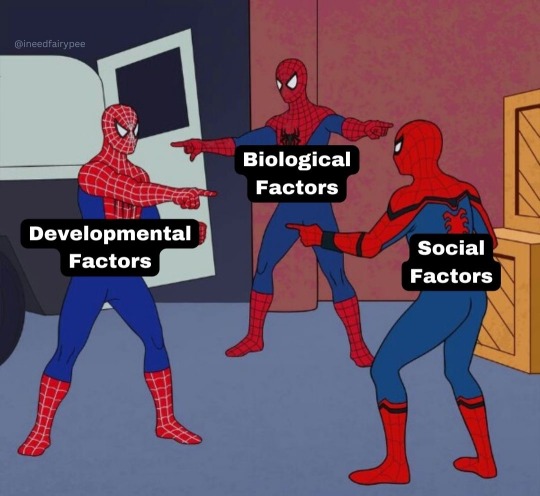
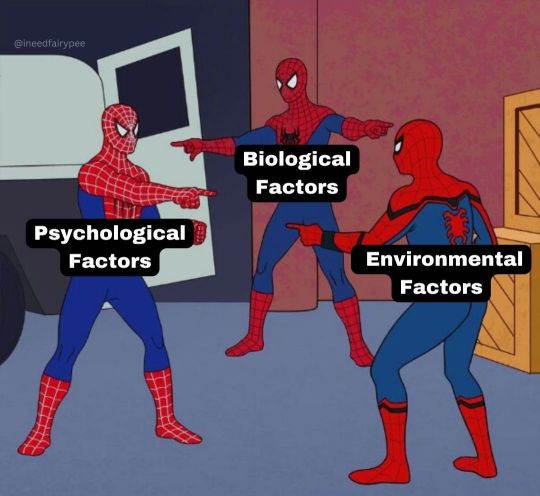
Psychology be like…
#psychology#psychology memes#psychology student#psychology facts#spiderman meme#psychology studyblr#mental illness#mental health#mental health memes#psychology nerd#student memes#university memes#psych student#child psychology#developmental psychology#original content#oc meme#oc#meme maker#psych#oc memes#ineedfairypee#fairypeememes#I Need Fairy Pee
80 notes
·
View notes
Text
Becoming Who You Were Meant to Be: “Dance of the Seven Veils I” offers a profound exploration of how primal psychology and rites of passage intersect to shape our identities.
*Dance of the Seven Veils I: Primal/Identity Psychology, Mythology and Your Real Self* by Michael Adzema (2017) is free September 30th thru October 4th, 2024, and again, Jaunuary 6th thru 10th, 2025. . Get your ebook-kindle copy then at Amazon. . At anytime, however, see that the entire book is copied below. You may read it that way … on this page, in this blog. . Or notice that there is…
#adolescence#anthro#Anthropology#authentic#authenticity#breathwork#child development#childhood#civilization#Consciousness#culture#Developmental Psychology#ffffff#Freud#identity#Janov#Joseph Campbell#Jung#mind#mythology#patriarchy#Philosophy#primal#primal scene#primal therapy#psyche#Psychology#rites of passage#shamanic#spiritual
6 notes
·
View notes
Text
Middle schoolers are weird because they will use "I am going to put the baby in the microwave" as a term of endearment.
I am weird because I am like "This is just verbalized cute aggression" as other adults look on in horror because they think teenagers are deranged instead of logical creatures in an extremely important stage of brain developmental.
2 notes
·
View notes
Text
True adulthood, or psychological maturity, has become an uncommon achievement in Western and Westernized societies,
and genuine elderhood nearly nonexistent. Interwoven with arrested personal development, and perhaps inseparable from it, our everyday lives have drifted vast distances from our species’ original intimacy with the natural world and from our own uniquely individual natures, our souls.
-Nature and the Human Soul, by Bill Plotkin
3 notes
·
View notes
Text
My developmental psych class today talked about social media use, especially with younger generations, and I couldn't help but think about the studies that show that shaming an obese person for their weight actually causes more overeating. When all the adults talk shit about kids and say it's these damn phones, I think it has a similar effect. Instead of saying horrid things, especially about gen alpha, which will likely cause a similar defensive attitude that doesn't help, can we please put the pressure on tech companies and the parents? Like, heavy on the parents. wdym you can't play Barbie's with your kid and you need to shove a tablet in their face. wdym you can't play hide and seek with your toddler and instead plop them in front of the TV. wdym you can't set a boundary with your kid and enforce it. Sorry, that's just embarrassing. People are a product of their environment, and it's so weird that we're blaming literal children for the environment they're put in that's specifically designed to be addicting, instead of working to change the environment. We're attacking the wrong part of the problem
#social media#fuck big tech#gen alpha#gen z#developmental psychology#psychology#social issues#mental health
2 notes
·
View notes
Text
ADUL(TEH)ING !?!

Everyone has always dreamed of being an adult, having the freedom to do whatever, having money, having fun, and just living in the moment. Maybe the portrayals of adulthood in countless films weren't an exaggeration; it was that hectic but fulfilling after all. It's like being reborn again, but this time, one isn't from a fetus to a newborn but from a fairytale to the real world.
Reality slaps, and it slaps hard; either one has to sulk and cry throughout life or stand strong and tall and face life with that slap mark on the face, and this blog's subject for today, Joy, has chosen the latter.
Joy, a woman in her 30s, says she pays good attention to her physique, practices getting enough sleep, and gets up and works out when life is hard. Now, that's what I call productivity! Of course, as time ages everyone, she also says that her physical capabilities have decreased compared to when she was a teenager. Although her energy level was higher when she was still an adolescent, she says she is more mindful now in taking care of herself, because quote, "Taking care of myself is something I owe to myself, and my children, not to other people". That is so giving very cutesy and very demure! I love that for her!
As for her cognitive development, she says her ability to think critically has steadily progressed, by being more of an empath, understanding people's emotions, and thinking before she acts, this mindset has contributed to her strength to overcome life's obstacles. She also says that she feels she is competent at handling different responsibilities all at once but she also still lacks confidence because she doesn't step out of her comfort zone. In terms of pleasure, she is not the kind of woman who will risk her future just for short-term fun, because she believes that long-term goals are more important than a glimpse of adrenaline. I love how she thinks! I could really learn a thing or two from her!
From the previous description, I think one would know what kind of a person she is! A sensible one! She says she values quality over quantity, so she's a little bit hesitant to make new acquaintances, she would rather spend time with her family and grow stronger in the face of annoyances. I love that so much for her! At this age, she described independence as living a carefree lifestyle away from toxic environments, being debt-free, and being stress-free. I mean, even at my age, I would too! As for her self-identity and sense of purpose at this stage of life, she says self-preservation is important due to her children who have significantly altered her sense of purpose in recent years. That is so sweet and loving! Individuality aside, she sounds like such a great mother!
One of the hardest challenges I think everyone can experience is to lose a loved one, and that is what she said when I asked her what was hers. Financial challenges are also very common at this stage because one is not only enjoying life but also making ends meet. Throughout the interview, I can tell she is the kind of person who has a lot of faith because she says she always has faith that everything will work out. All the negativity aside, she is also full of positivity! She described having great independence and self-reliance to be a wonderful aspect because she acts without fear of criticism and knows that it's ultimately her choice, and for all her accomplishments, she thanks God for it! Not only is she such a strong woman, but she also embodies faith and self-sufficiency, and I think that is such a power move!
2 notes
·
View notes